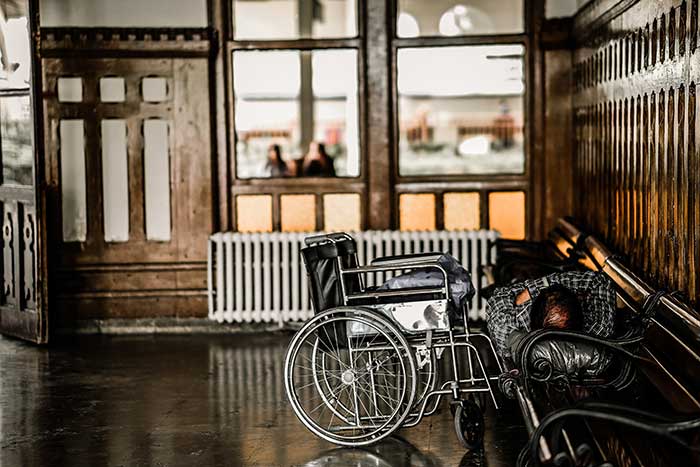Finding a job can be very difficult for anybody, but for Australians with disabilities, it can sometimes be even harder. With common misconceptions in the workplace about varying abilities or disabilities, job interviews can sometimes seem like an impossible uphill battle. So if this sounds all too familiar to you or someone in your care, here are five things that could make all the difference.

1) You have rights
Discrimination is an unfortunate reality in the workplace. And whilst most of the time, it isn’t done intentionally, you need to be completely up to date with all your rights as a disabled worker in order to ensure that you are treated fairly.
The Disability Discrimination Act 1992 makes discrimination against disabled workers illegal. It also ensures that employees and job applicants are protected against discrimination and exclusion from a job they are able to perform safely and effectively. Furthermore, it also states that employers, by law, have to make any reasonable workplace adjustments to allow a disabled worker to perform the core functions of their role effectively.
In order to make sure that potential employers aren’t excluding you or discriminating against you, you need to be fully aware of these rights and legalities.
2) You could be eligible for financial aid
Depending on your disability and the limitations it imposes, you could be eligible for government funding or assistance. For more information, you should check out the National Disability Insurance Scheme website and familiarise yourself with all the resources available to you.
This government scheme of the course covers a wide range of different services, so if you’re having trouble navigating the system or understanding what you’re entitled to, don’t be afraid to pick up the phone and ask for help.
3) You don’t have to do it alone
The NDIS is a great resource for finding support, but did you know that you could also be eligible for specific disability employment services in Australia? There are organizations out there who can help you access the funding or support you need as well as help you to navigate the job searching process. From writing your CV to preparing for interviews, there’s help out there specifically for people in your situation, so make sure you take advantage of it.
4) Explaining things to your interviewer could change everything
We’ve already discussed how discrimination is an unfortunate but very real part of the workplace. And whilst there are government measures in place and organizations out there trying to educate employers about these issues, it’s also important that you are able to communicate your rights and expectations during the interview process.
As much as we’d like to live in a world where everyone understands everything about your disability, the reality is that we simply don’t. Having the ability to calmly explain what your disability involves and what that means for your employer can really help you to secure the job you want. For example, they may assume that you are not able to perform particular tasks when in actual fact, you have no issues in that area. It’s also possible that your employer may be eligible for grants and government funding simply for employing you. Don’t assume that your employer knows all these things, spelling them out at interview stage could actually make all the difference.
5) The support doesn’t end when you land a job
Some people with disabilities may require ongoing support in order to thrive in the workplace. If you think you could fall into this category, you may be eligible to receive that support. You will need to complete an assessment to determine what kind of help best suits your needs, but in theory, you may be eligible for Disability Management Services or Employment Support Services to help you keep a job for the long term.
Conclusion
Finding work as a disabled person can be difficult, but it’s definitely not impossible. The most important thing is to know what your rights are and where you can get the support you need. There are plenty of organizations out there that are specifically equipped to help people in your situation, so don’t be afraid to reach out and ask for their help.
